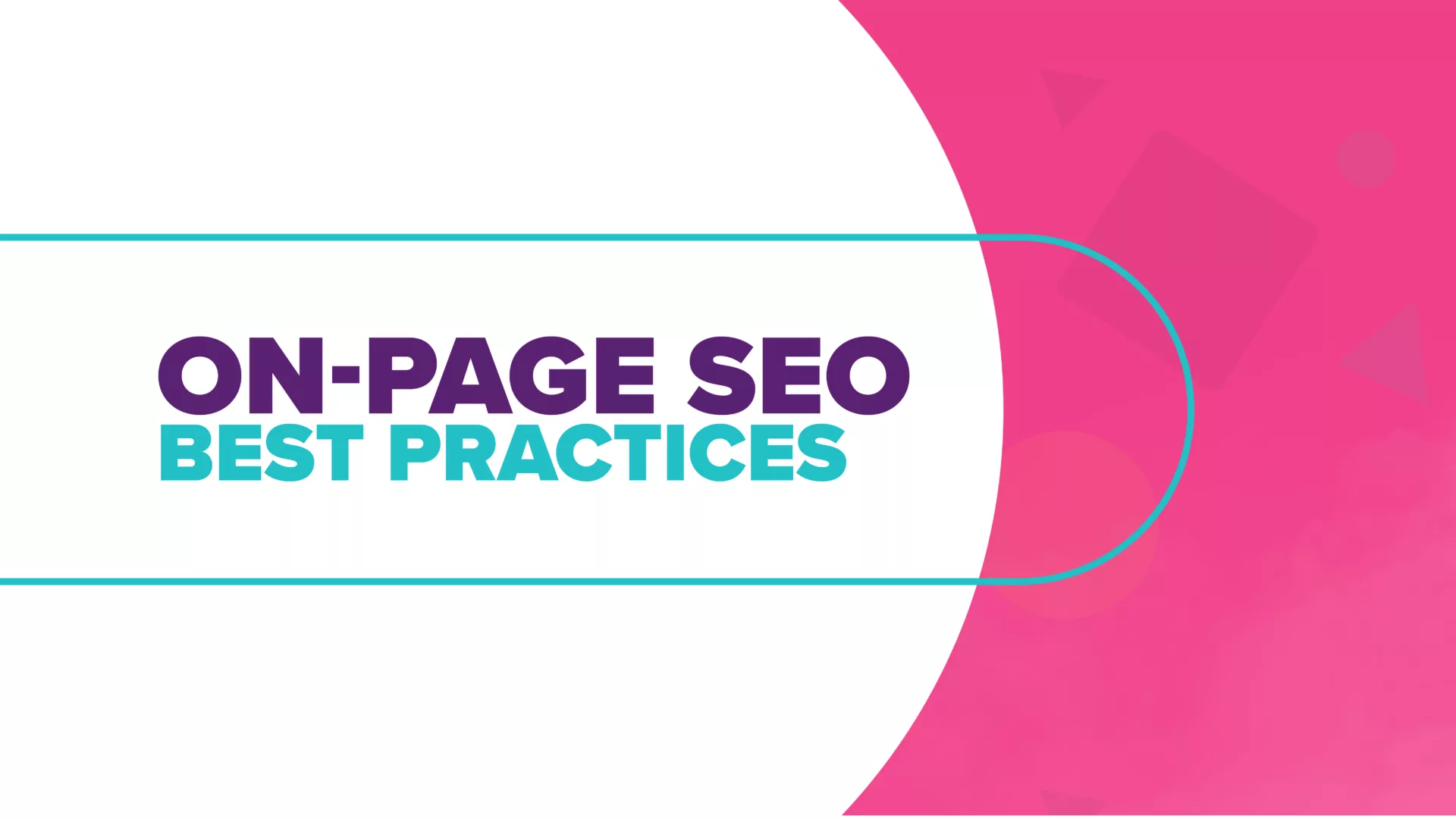On-Page SEO Best Practices
Stay ahead in the online landscape with proven strategies to optimize content, meta tags, and website structure. Maximize your SEO potential and drive organic traffic!

In the ever-evolving realm of digital marketing, staying ahead of the curve is the key to success. As search engines continually refine their algorithms, on-page SEO practices have become the linchpin for achieving and maintaining online visibility. Let’s explore best practices for on-page SEO with actionable insights to propel your digital presence to new heights.
Keyword Research is the Bedrock of On-Page SEO
At the core of any successful on-page SEO strategy lies comprehensive keyword research. Understanding your audience's search intent is crucial. Tools like Google Keyword Planner, SEMrush, or Ahrefs can unveil valuable insights into relevant keywords for your industry. Strategic integration of these keywords into your content, headings, and meta tags forms the foundation for effective on-page optimization.
Quality Content is King
Compelling content reigns supreme in the digital landscape. Google's algorithms are designed to prioritize high-quality, relevant content that addresses users' queries. Craft content that provides value, solves problems, and engages your audience. Aim for in-depth, authoritative pieces that showcase your expertise and establish your website as a go-to resource in your niche.
Optimize Meta Tags to Craft the Perfect First Impression
Meta tags, including title tags and meta descriptions, are the first glimpse users have of your content on search engine result pages (SERPs). Craft compelling, concise titles that incorporate targeted keywords and accurately represent your content. Meta descriptions should entice users to click through while summarizing the essence of your page. Utilize schema markup to enhance the appearance of your snippets in search results.
User-Friendly URL Structures are a Roadmap for Success
Clear, concise, and user-friendly URLs contribute to both user experience and search engine rankings. A well-structured URL provides a roadmap for both users and search engines, making it easier to understand the context and relevance of a page. Avoid long, convoluted URLs, and use hyphens to separate words for readability.
Responsive Design Caters to the Mobile Revolution
In an era where mobile usage has surpassed desktop, having a responsive design is non-negotiable. Google prioritizes mobile-friendly websites in its rankings, making it imperative to ensure that your site is optimized for various devices. Responsive design not only improves SEO but also enhances the overall user experience, contributing to lower bounce rates and higher engagement.
The Need for Page Loading Speed
User attention spans are shrinking, and page loading speed is a critical factor in retaining visitors. Google considers page speed when determining search rankings, making it essential to optimize images, leverage browser caching, and invest in reliable hosting. Tools like Google PageSpeed Insights can provide actionable recommendations to enhance your site's loading speed.
Create a Web of Internal Linking
Internal linking is a powerful on-page SEO technique that connects the dots within your website. By strategically linking relevant pages, you distribute authority and help search engines understand the hierarchy and structure of your content. This not only boosts SEO but also encourages users to explore more of your site, increasing the time spent on-page.
Optimize Images
Images are integral to engaging content, but they can also impact page performance. Optimize images by compressing files, using descriptive file names, and incorporating alt text. Alt text not only improves accessibility but also provides search engines with valuable context, contributing to improved rankings.
SSL Encryption Builds Trust and Security
Security is a top priority for both users and search engines. Google favors websites with SSL encryption, and users are more likely to trust sites with the "https" designation. Implementing SSL not only enhances your site's security but also contributes to improved search rankings.
Social Media Integration Amplifies Reach and Visibility
Social signals are becoming increasingly influential in search engine algorithms. Integrate social media sharing buttons, encourage social sharing, and maintain an active social presence. Engaging on social platforms not only extends your reach but also contributes to a positive online reputation, indirectly impacting your SEO performance.
Rocket Park Navigates SEO with Expertise and Innovation
Mastering on-page SEO is an ongoing journey that requires adaptability and a commitment to excellence. By implementing these best practices, Rocket Park navigates the complex landscape of search engine algorithms and emerges as a leader in the digital marketing industry. Want to partner with us? We can help you stay proactive, embrace innovation, and see your online presence soar to new heights.
